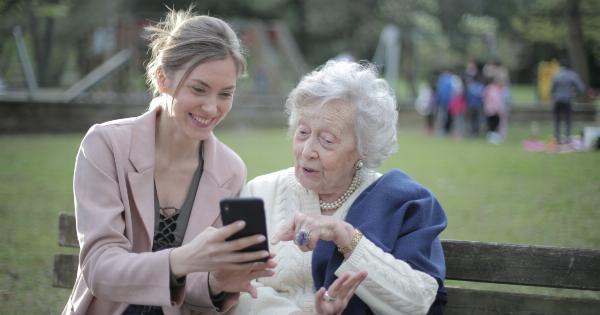High blood pressure, or hypertension, is a condition that most people tend to associate with negative outcomes. It’s a well-known fact that high blood pressure can lead to serious health problems like heart disease and stroke.
However, recent studies have found that high blood pressure could actually be beneficial for the elderly. In this article, we’ll explore why high blood pressure may not always be a bad thing for seniors.
What is High Blood Pressure?
Before we dive deeper into the topic, let’s first define what high blood pressure is. Blood pressure is the measurement of the force of blood pushing against the walls of arteries as the heart pumps it through the body.
High blood pressure occurs when the force of blood pushing against the artery walls is too strong, which can damage the heart and blood vessels over time. Normal blood pressure is generally considered to be 120/80 mmHg or lower, whereas high blood pressure is defined as a reading of 130/80 mmHg or higher.
The Link Between High Blood Pressure and Mortality
The link between high blood pressure and increased mortality is well established. According to the American Heart Association, hypertension is a major risk factor for heart disease, stroke, kidney failure, and other health problems.
High blood pressure makes the heart work harder than it should, leading to conditions that can be life-threatening if left untreated. However, these risks may not apply to all populations equally.
The Benefits of High Blood Pressure for the Elderly
Recent studies have shown that high blood pressure in elderly individuals may in fact be beneficial.
A study published in The Lancet found that adults over age 75 with high blood pressure had a lower risk of developing dementia than those with normal blood pressure. Another study published in the Journal of the American Geriatrics Society found that older adults with high blood pressure actually had a lower risk of developing frailty and disability than those with normal blood pressure.
Researchers believe that the reason for these findings is that high blood pressure may help maintain blood flow to the brain and other vital organs in older adults.
As we age, reduced blood flow to the brain can cause cognitive decline and other health issues. Therefore, it’s possible that high blood pressure might help counteract some of the negative effects of aging on the brain and other vital organs.
Risks of Lowering Blood Pressure in the Elderly
Given the potential benefits of high blood pressure for the elderly, some researchers have raised concerns about the risks of lowering blood pressure too aggressively in older adults.
The Systolic Blood Pressure Intervention Trial (SPRINT), a large-scale randomized controlled trial, found that intensive blood pressure control (aiming for a target of less than 120 mmHg) in older adults lowered the risk of cardiovascular disease, but also increased the risk of kidney damage, fainting, and electrolyte abnormalities.
Additionally, some older adults may be more vulnerable to the side effects of blood pressure medications. Medications like diuretics, which are often used to treat hypertension, can increase urine output and lead to dehydration in older adults.
This can cause problems with kidney function and lead to falls and other injuries.
Considerations for Managing High Blood Pressure in the Elderly
Managing hypertension in older adults should always be done on a case-by-case basis. Older adults who are otherwise healthy and active may not need aggressive blood pressure control.
Additionally, some elderly individuals may benefit from less aggressive blood pressure treatment in order to maintain sufficient blood flow to critical organs like the brain.
The American College of Cardiology and the American Heart Association recently updated their guidelines for treating hypertension in older adults.
They recommend that healthcare providers take into account an individual’s overall health status and functional ability when deciding on a blood pressure treatment plan. In some cases, a higher blood pressure threshold may be appropriate for older adults, particularly those with existing health problems or those who experience side effects from blood pressure medications.
Conclusion
Although high blood pressure is a serious health issue for many people, recent research has shown that it may actually be beneficial for the elderly in some cases.
High blood pressure may help maintain blood flow to critical organs like the brain, reducing the risk of conditions like dementia and frailty. However, managing hypertension in older adults can be tricky, and it should always be done on an individual basis.




























